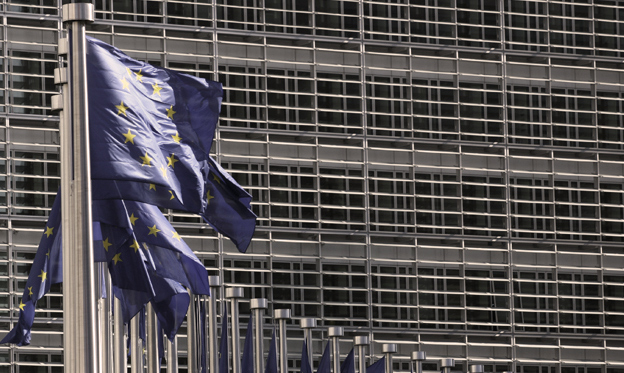
Insights | December 4, 2018
The Swedish Supreme Court has its say regarding dawn raids and the right to appeal the Swedish Competition Authority’s conduct during a raid
During spring 2017, the Swedish Competition Authority (the “SCA”) raided the premises of several insurance firms, including the Swedish insurance firm Söderberg & Partners (“S&P”), suspected of anti-competitive conduct. The Roschier Reflections article on these raids can be found here.
On 30 November 2018, the Swedish Supreme Court delivered its ruling stating, in essence, that the SCA must now ask the Swedish Enforcement Agency (Sw. Kronofogdemyndigheten) for judicial assistance before it reviews or copies contested material during the course of an investigation of alleged violations of the competition rules.
Background
The SCA found that there was reason to suspect that several companies active on the market for the supply of insurance services was coordinating their behavior. The SCA requested permission from the Patent and Market Court to conduct an inspection (so called dawn raid) at the premises of the insurance companies allegedly involved for the purpose of investigating whether any of them had violated competition law. The Patent and Market Court allowed the inspection and the SCA raided the premises of several insurance companies, including S&P. During the raid the SCA mirrored several hard drives (i.e., made forensic copies of digital material) and received S&P’s permission to continue the review of the materials at the premises of the SCA. At the end of the inspection S&P made it clear to the SCA that it believed that some of the material that the SCA had mirrored and intended to include in its investigatory file, was outside of the scope of the permission granted by the Patent and Market Court allowing the inspection. The SCA disagreed and included the contested material into its case file. S&P appealed the SCA’s decision to do so before the Supreme Court arguing that the Supreme Court should remand the case to the Patent and Market Court to be tried on its merits.
The Swedish Supreme Court
The issue before the Supreme Court was whether the Swedish Competition Act’s rules on dawn raids and on the right to appeal enforcement measures taken during such raids meet the requirements set by EU law and the European Convention of Human Rights (the “ECHR”) in regards to inter alia the right to respect for private life and correspondence and the right to a fair trial. The Supreme Court also considered the question of how a company subjected to a raid could be compensated in the event that such a raid is found to have been wrongly conducted.
The Supreme Court stated that according to the Swedish Competition Act, the SCA can carry out an investigation at the premises of companies suspected of violating the competition rules only after a decision by the Patent and Market Court allowing the raid. While carrying out the inspection, the SCA has the authority to review as well as seize and copy physical and electronic information. If the firm contests the SCA’s right to review or copy certain material on the grounds that the measure is out of scope of the decision by the Patent and Market Court, the SCA must submit the disagreement to the Swedish Enforcement Agency and request its assistance in order to review or copy the contested material. This procedure must be followed regardless whether the information is physical or electronic, or stored at the premises of the SCA or the company which is subject to the investigation. The decision issued by the Swedish Enforcement Agency regarding the contested material can be appealed. This is a crucial point as according to the Swedish Competition Act, a decision by the SCA to, for instance, copy contested material (without requesting assistance from the Swedish Enforcement Agency) is not an appealable decision. However, there are no requirements in EU law or in the ECHR according to which enforcement measures taken by the SCA during an investigation must be subject to an appeal. A company can appeal the decision to allow the inspection, as well as any subsequent enforcement measure taken by the Swedish Enforcement Agency (as requested by the SCA) during the course of the investigation. Accordingly, the Supreme Court concluded that a company’s judicial rights are protected by the current legal framework set out in the Swedish Competition Act and while it may be questioned whether the current legal framework is fully effective, it meets the standards set by EU law and the ECHR.
The Supreme Court found additionally that in the event that the conduct by the SCA in a particular case leads to a company’s right of appeal being denied, that company may have a right to compensation for damages caused. The fact that the applicable laws cannot be used in a particular situation may partly or wholly be due to the conduct of an authority. However, this does not mean that an existing right of appeal can be expanded, or that such a right can be created for an individual case. The right to an effective remedy or fair trial may instead be upheld by other means, and ultimately by way of monetary compensation.
The Supreme Court concluded that the Swedish Competition Act’s rules on inspections meet the requirements set by EU law and the ECHR. The SCA did not follow the applicable rules in this particular case and because of this there is no decision to appeal. S&P has thus been denied its right to appeal but as there is no option to now create such a right, the Supreme Court dismissed the action.
The SCA has updated its routines following the Supreme Court’s ruling and will now ask for judicial assistance from the Swedish Enforcement Agency before carrying out measures that the company or companies subject to an inspection claim are out of scope of the decision by the Patent and Market Court, see here (SW).